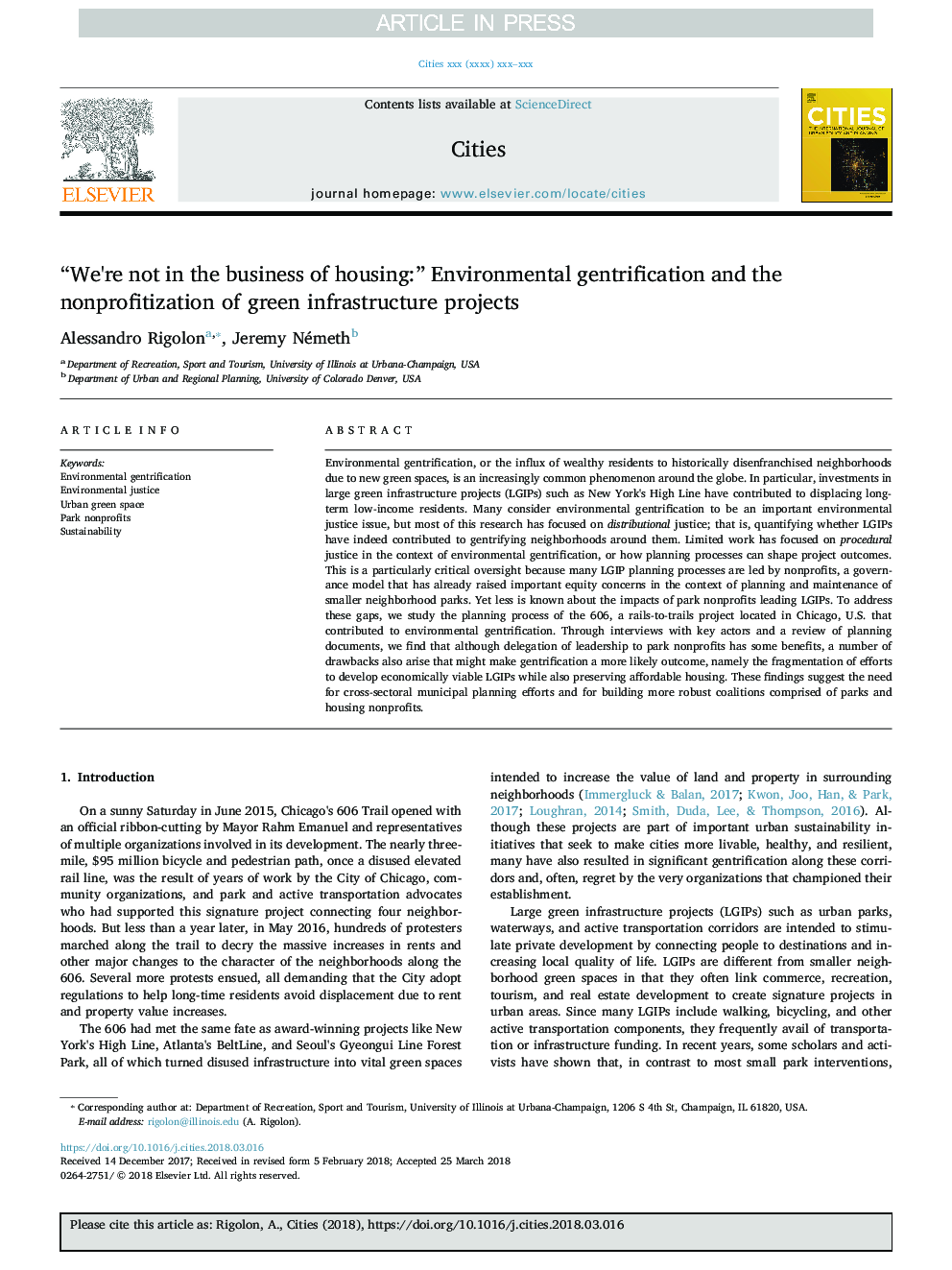| کد مقاله | کد نشریه | سال انتشار | مقاله انگلیسی | نسخه تمام متن |
|---|---|---|---|---|
| 8954657 | 1646031 | 2018 | 10 صفحه PDF | دانلود رایگان |
عنوان انگلیسی مقاله ISI
“We're not in the business of housing:” Environmental gentrification and the nonprofitization of green infrastructure projects
ترجمه فارسی عنوان
ما در تجارت مسکن نیستیم:؟ مدیریت زیست محیطی و عدم تصفیه پروژه های زیربنایی سبز
دانلود مقاله + سفارش ترجمه
دانلود مقاله ISI انگلیسی
رایگان برای ایرانیان
کلمات کلیدی
موضوعات مرتبط
علوم انسانی و اجتماعی
مدیریت، کسب و کار و حسابداری
گردشگری، اوقات فراغت و مدیریت هتلداری
چکیده انگلیسی
Environmental gentrification, or the influx of wealthy residents to historically disenfranchised neighborhoods due to new green spaces, is an increasingly common phenomenon around the globe. In particular, investments in large green infrastructure projects (LGIPs) such as New York's High Line have contributed to displacing long-term low-income residents. Many consider environmental gentrification to be an important environmental justice issue, but most of this research has focused on distributional justice; that is, quantifying whether LGIPs have indeed contributed to gentrifying neighborhoods around them. Limited work has focused on procedural justice in the context of environmental gentrification, or how planning processes can shape project outcomes. This is a particularly critical oversight because many LGIP planning processes are led by nonprofits, a governance model that has already raised important equity concerns in the context of planning and maintenance of smaller neighborhood parks. Yet less is known about the impacts of park nonprofits leading LGIPs. To address these gaps, we study the planning process of the 606, a rails-to-trails project located in Chicago, U.S. that contributed to environmental gentrification. Through interviews with key actors and a review of planning documents, we find that although delegation of leadership to park nonprofits has some benefits, a number of drawbacks also arise that might make gentrification a more likely outcome, namely the fragmentation of efforts to develop economically viable LGIPs while also preserving affordable housing. These findings suggest the need for cross-sectoral municipal planning efforts and for building more robust coalitions comprised of parks and housing nonprofits.
ناشر
Database: Elsevier - ScienceDirect (ساینس دایرکت)
Journal: Cities - Volume 81, November 2018, Pages 71-80
Journal: Cities - Volume 81, November 2018, Pages 71-80
نویسندگان
Alessandro Rigolon, Jeremy Németh,
